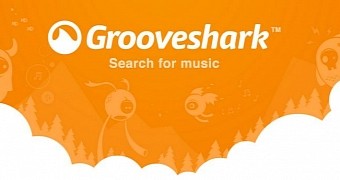The summary judgment Universal Music was hoping to obtain from the United States District Court has been issued, and Grooveshark is facing a huge threat.
The service was found guilty of copyright infringement charges, while the founders were found liable for direct infringement, TorrentFreak reports.
The case started some four years ago and has been going on ever since, moving back and forth between guilty and innocent. Now, the judge decided that Escape Media, Grooveshark’s parent company, and two of the top execs were liable for infringing the rights of the labels.
The summary judgment lists all of Grooveshark’s history and all the licensing issues it went through.
One of the main problems seems to be an email sent by Josh Greenberg, co-founder, back in 2007 to his employees, in which he was encouraging them to share as much music as possible from outside the office and leave their computers on whenever possible.
“If you have an available hard drive space on your computer, I strongly encourage you to fill it with any music you can find. Download as many MP3’s as possible, and add them to the folders you’re sharing on Grooveshark,” he said at the time. Furthermore, he gave everyone a deadline to do all this during the weekend and send him an email about their work.
Before it turned into a streaming service, Grooveshark carried millions of tracks uploaded by Greenberg, Sam Tarantino, the other co-founder, and employees. The co-founders were found “jointly and severally liable for Escape’s direct and secondary copyright infringement, as well as guilty for personally uploading tracks.”
“Escape’s senior officers searched for infringing songs that had [been] removed in response to DMCA takedown notices and re-uploaded infringing copies of those songs to Grooveshark to ensure that the music catalog remained complete,” the decision reads.
Lengthy dispute over a trove of tracks
The dispute that led to Universal Music asking the court for a summary judgment was the existence of tracks that were recorded pre-1972 on the service. While tracks following February 15, 1972 are covered by the federal copyright legislation, which means that Grooveshark can use DMCA’s safe harbor provisions, songs recorded before that date are only covered by New York state law.
Escape Media wants to appeal the judgment that was handed out in the hopes to get a different result, much like it did in the past, when one court found them guilty and the next innocent.

 14 DAY TRIAL //
14 DAY TRIAL //